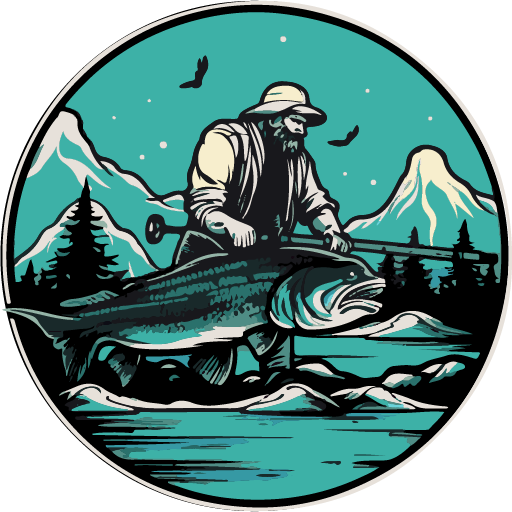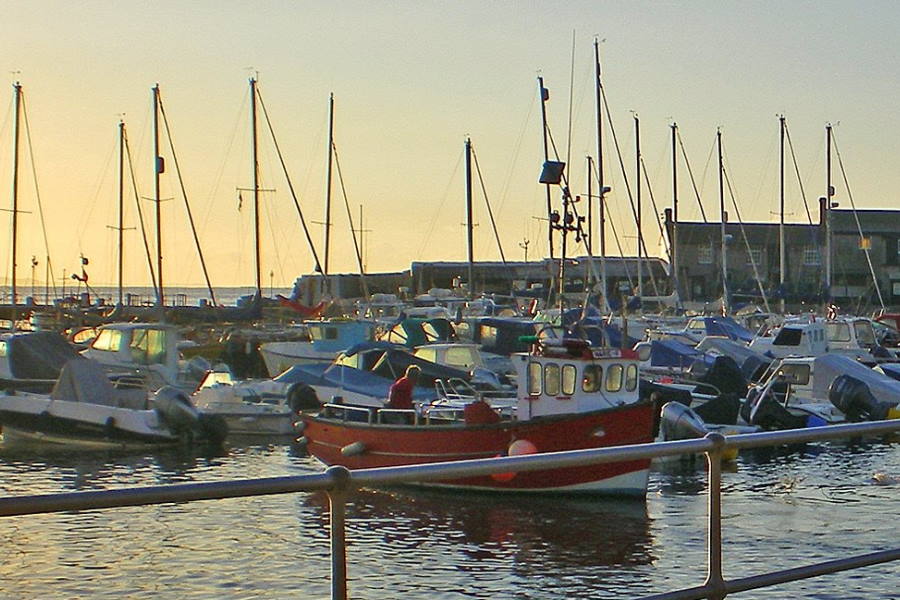All about Offshore Fishing
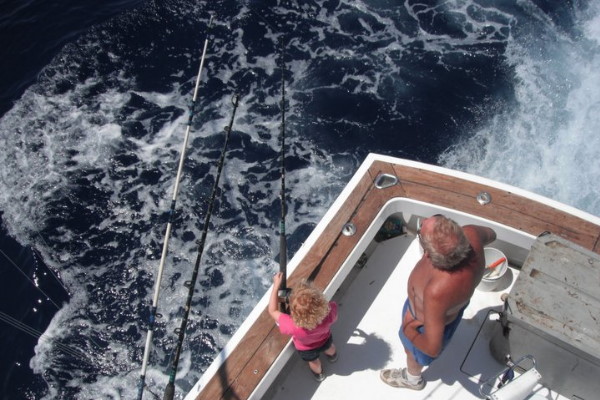
Going offshore fishing can be a thrilling and rewarding experience, but it can also be dangerous if you don’t prepare properly.
Recreational fishing techniques include hand gathering, bow fishing, spearfishing, netting, angling, and trapping. Offshore fishing requires specialized knowledge and equipment to ensure your safety, and to maximize your chances of catching a fish.
This guide will teach you everything you need to know before embarking on your next fishing adventure. From the basics of fishing offshore to tips on where to find fish, we will have you ready to go!
So, what are you waiting for? Read on and learn all there is to know about offshore fishing!
What Is Offshore Fishing?
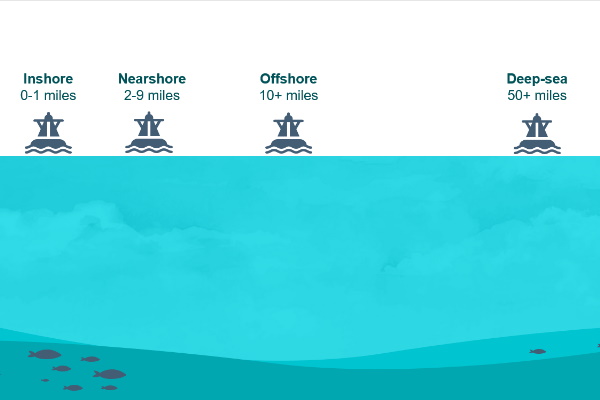
Offshore fishing is a type of fishing that takes place in deep saltwater, usually more than 30 feet depth and more than ten miles from the shore. It can include oceanic waters or large lakes. This type of fishing requires a boat to reach the desired location. Once at the fishing spot, anglers use various techniques to try and catch fish.
It can be done from several boats, such as center consoles, sport fishers, or even charter boats.
What Are the Benefits of Offshore Fishing Trips?
- Fishing in deep water offers anglers the opportunity to catch a wide variety of fish. The vast open waters give a greater chance of encountering different types of fish than if you stay closer to shore.
- It is often more challenging and exciting than other types of fishing because you are more likely to encounter more powerful and bigger fish.
- Additionally, this can be very satisfying in both terms of the fish you catch and the experience itself.
- Another benefit is that it can be a great way to relax and enjoy the beauty of the ocean. It allows you to explore new areas. When you go offshore saltwater fishing, you will have the opportunity to see different parts of the world that you may not have had the chance to visit. This experience will be truly unique and memorable.
- One more benefit is that it is helpful for your health. Fishing activities can be seen as exercise. Besides, you can also breathe fresh air from the sea, which you may not get when fishing on the shore.
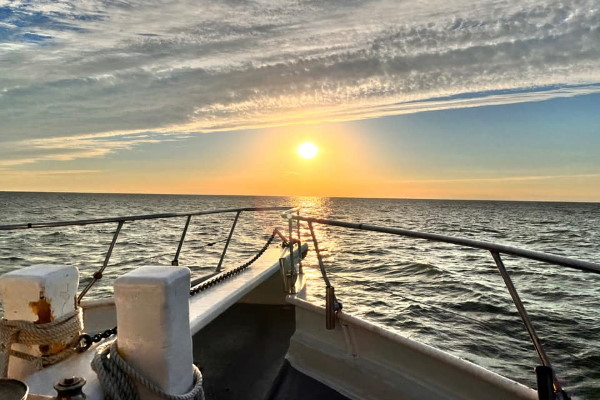
If you’re looking for an adrenaline-pumping fishing adventure, this activity is definitely for you!
What Is the Best Time to Fish Offshore?
The best time to fish offshore depends on the type of fish you’re hoping to catch.
Some fish are more active in certain seasons than others. For example, marlin is more commonly found in the summer, while tuna is more prevalent in spring and fall.
Additionally, the time of day can affect your chances of success when fishing. Certain types of fish are more active during certain times of the day. For example, swordfish are most active at night, while sharks usually bite during the day.
It is essential to research the type of fish you’re hoping to catch to increase your chances of success. This way, you’ll know when and where to find them.
According to the experience of many anglers, there are some good times for offshore fishing, such as:
- Falling tide: This is when the tide starts to fall. Many fish become more active during this time, making it a perfect time to fish. It is told that two hours before the low tide is the best time for fishing.
- Rising tide: This is when the tide starts to change from low to high. Although this time is not as good as the falling tide, it is still a good time for fishing. Taking advantage of the water movement and fish feeding time, you can try fishing at this time someday. Like the falling tide, two hours before the full high tide is the best time for fishing.
- Sunrise and sunset: The early mornings are often calm and peaceful. This time is good to fish, as many fish are more active during this time of day. According to reports, fishing the hour before and an hour after sunrise and sunset usually has good results.
- Late evening: Many anglers find that the late evening hours are some of the best to fish. Many fish, such as swordfish and sharks, are more active at night. This time is good to fish for these species.
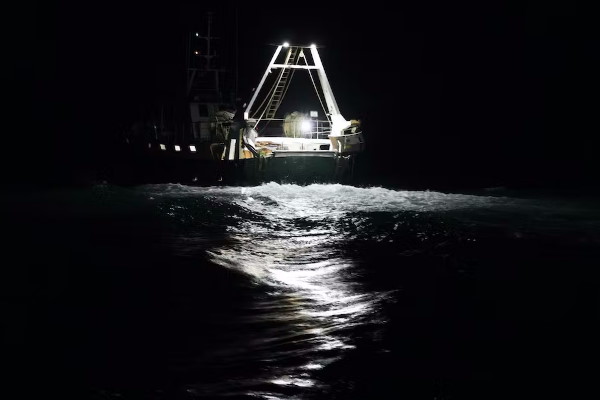
What Are Some Tips for Fishing Offshore?
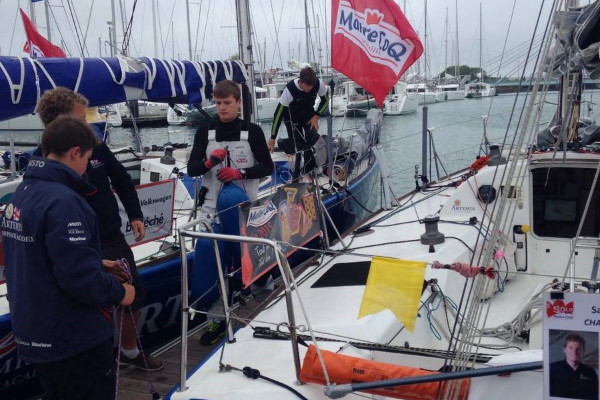
Now that you know the basics of offshore fishing, here are a few tips to help you make the most of your experience:
1. Choose the right boat: When selecting a boat for fishing offshore, it is essential to choose one that is safe and stable. You should also ensure that the boat has enough space for all your supplies and equipment.
2. Get the proper supplies and equipment: As we mentioned before, you’ll need to ensure you have all the necessary supplies and equipment before going deep-sea fishing, including items such as life jackets, food, water, first-aid supplies, and more.
3. Familiarize yourself with the basics: Before heading out, it is essential to learn about different types of fish, how to find them, and what bait to use. Those will help you make the most of your off shore fishing experience.
4. Be prepared for anything: When going offshore saltwater fishing, it is vital to be prepared for anything. The weather can change quickly without warning, so it is essential to have a plan in place in case of an emergency.
5. Additionally, since you will be far from shore, it is crucial to have all the necessary supplies on board the boat, including food, water, first-aid supplies, and more.
6. Have fun: Going deep-water fishing can be an exciting and rewarding experience. So, make sure to relax and enjoy yourself!
Follow these tips you are sure to have a great time fishing in the deep sea.
What Gear May You Need?
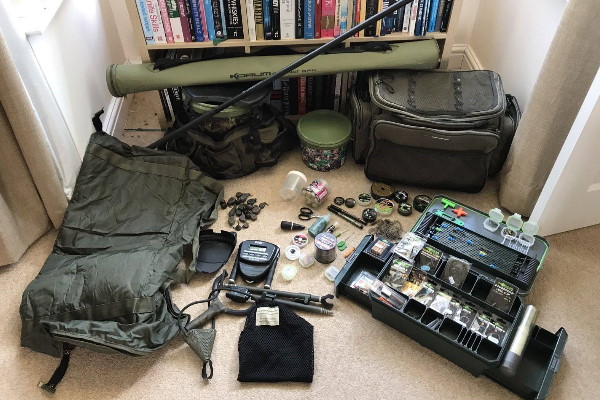
Offshore fishing requires different gear than other types of fishing. It is because the fish you are likely to encounter differ from those found inshore.
The type of gear you’ll need will depend on the fish you are hoping to catch, as well as the method of fishing you plan to use.
Some essential fishing gear includes:
- A boat: you’ll need a boat to get to your desired fishing location. That is seaworthy and equipped with all the necessary safety gear. It is large enough to handle the rough waters and the fish you catch.
- Heavier line: the fish in the deep sea may be much larger and more powerful than the fish near the shore. Therefore, you should prepare more durable items. Especially the fishing line must be heavy enough to withstand the fish.
- Fishing rod and reel: This is perhaps the most critical piece of fishing gear. Make sure to choose a rod and reel appropriate for the type of fish you want to catch.
- Lures or bait: They depend on the type of fish you want to catch and the fishing technique used. You had better learn about the sea you will be fishing in to make the right choice. It is best to consult the local reports or ask for advice from the tackle shops nearby.
- Fishing net: A fishing net can help land fish once they’ve been hooked. You had better prepare the net with a handle long enough to reach the water from the boat and a hoop big enough for the fish you want to catch. A rubber mesh or rubberized coating net is better than a knotted nylon net as it can injure the fish.
- Binoculars: Finding a fishing spot with a lot of fish has a great deal to do with the effectiveness of a fishing session. As we all know, binoculars can show us things even from miles away. Therefore you can use it to detect spotting flotsam and weed line fish hiding under the water. Professional anglers can determine where there are much fish by observing diving seagulls. Besides, you can also look over the actions of other boats if any problems occur.
Some other necessary supplies you also need to bring such:
- Basic tool kit to make repairs to your gear as needed;
- A cooler to store your catch; a bucket to store bait, use as a seat, and hold loose gear;
- Long-nose pliers to remove hooks from fish;
- A GPS to help you navigate the open waters.
Consult a professional if you have questions or concerns about safety or gear. And most importantly, have fun!
Common Off shore Fishing Techniques
1. Trolling:
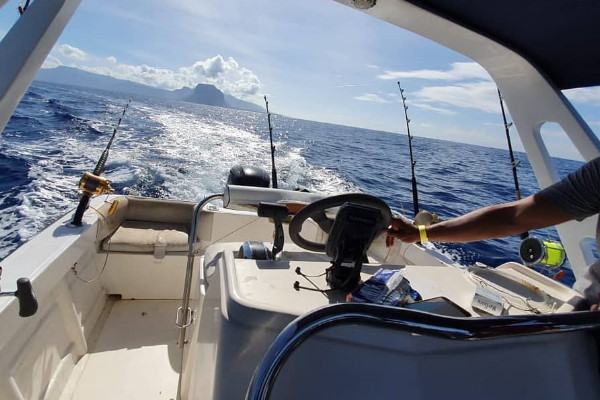
Trolling is the most common offshore fishing technique. Anglers drag lures or bait behind a boat to attract fish, seeing the boat as a big lure.
Every captain will have different ways of trolling setups, but they all come to the end goal of having as many lines in the country as possible. You’d better prepare plenty of rod holders, outriggers, downriggers, and other gear to increase your chances of taking a bite.
Choosing the right speed, bait, and line placement will determine the success of fishing that day.
This technique is popular for catching pelagic fish such as tuna, marlin, Mahi Mahi, Billfish, and sailfish.
2. Bottom fishing:
Bottom fishing, as its name suggests, catches fish on the seabed.
What you need in this way of fishing is a fishing line long enough to reach the bottom, adding weight to it so it can sink to the bottom and not be carried away by the current.
The rest you need to do is wait patiently for bottom-dwelling fish such as snapper, grouper, and flounder.
3. Jigging:
Jigging is a type of fishing where anglers use lures with a jerking motion to attract fish.
The angler will drop lures at different depths and jig to attract fish. This fishing technique can use in wrecks, reefs, and rock piles.
It works with rockfish, yellowtail, stripers, grouper, king mackerel, wahoo, snapper, and mackerel.
4. Chumming:
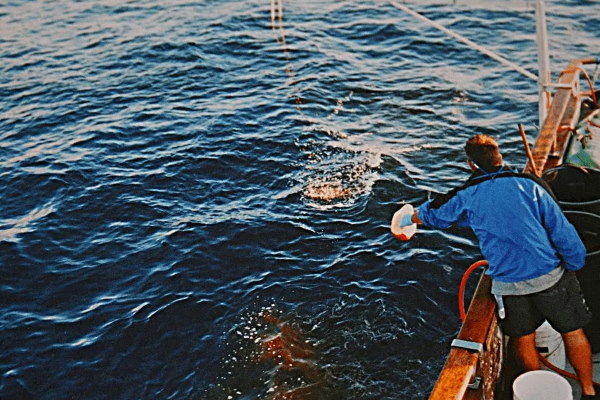
Chumming is a popular method of bringing fish closer to the boat. The angler will slowly spread bait in the water and create a wake of chunks of bait fish from smaller fish like butterfish and mackerel.
This technique often uses in conjunction with others, such as trolling or bottom fishing.
Chumming helps you to catch big fish like dolphins, sharks, tuna, and wahoo.
5. Kite fishing:
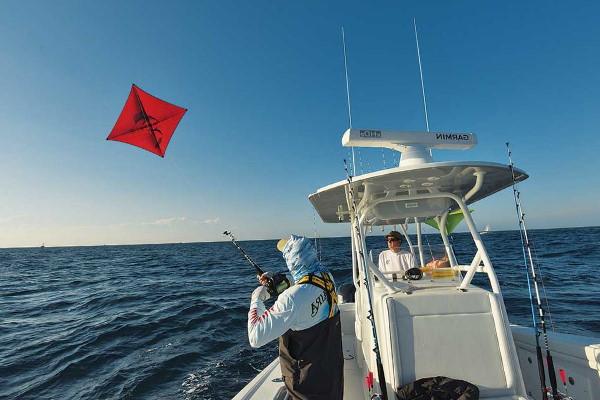
Kite fishing is similar to trolling but in the air.
Anglers use kites to hold their lines in the air while they fish. So the bait will splash around and barely touch the water.
These baits appeal to Marlin, tuna, sailfish, mahi-mahi, and other Billfish. This fishing method is so effective that it is banned in some bluewater fishing tournaments.
6. Fly fishing:
Fly fishing is a type of fishing where anglers use flies, or lures that resemble flies, to attract fish.
Big fish will require big gear. So prepare the heaviest line, heavy-duty rods between 8 and 12 wt, large flies, and big hooks. They will give you a chance to get a strike.
This technique can use to catch a variety of different fish.
Popular Offshore Destinations Around The World
There are many popular offshore fishing destinations around the world. Some of the most popular include:
Key West, Florida
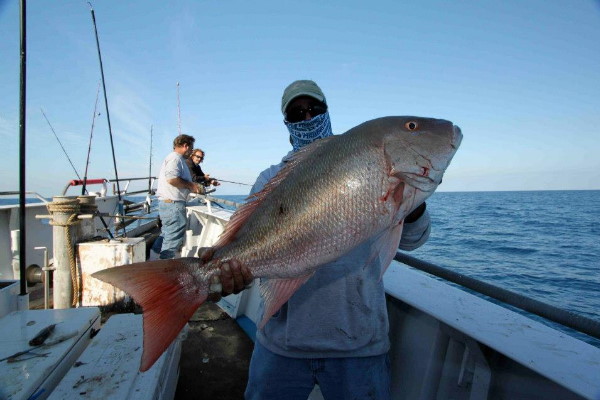
Key West is a gateway to the Dry Tortugas and houses some of America’s best fishing grounds. There are plenty more inshore guides available here whether you’re looking for an offshore charter or want some alone time at sea.
Offshore anglers can find sailfish, blue marlin (including blackfin tuna), and wahoo – only name your fish! And if you’re looking for something more land-based, there are also harbor amberjack on wrecks or reefs. Other regional favorites like mutton snapper(mangrove)and yellowtail excitedly waiting nearby in their natural habitat.
Here, you can enjoy delicious seafood at one restaurant after another until bedtime rolls around again!
Cabo San Lucas, Mexico
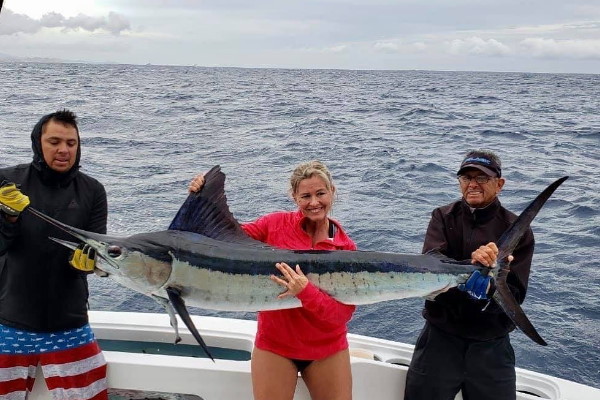
With its beautiful beaches, pristine waters, and world-famous resorts, Cabo San Lucas is a favorite destination for fishing enthusiasts. In many regions, it’s not uncommon to fish deep blue water means an afternoon spent running ten or twenty miles offshore before lines go in on rough days.
But with only a couple miles from the shoreline in this area, there are plenty more types of fish like dorado and yellowfin tuna available for those who come prepared with their gear or know where they can find them beforehand (like around restrictions). If catching some bragging-size marlin isn’t enough, maybe trying one up on board will make sense too. Since most Blue Water Fishing trips only last about 2 – 10 hours, depending upon location/time spent at sea, we usually don’t mind an extra hour or so getting back to the docks.
San Diego, California
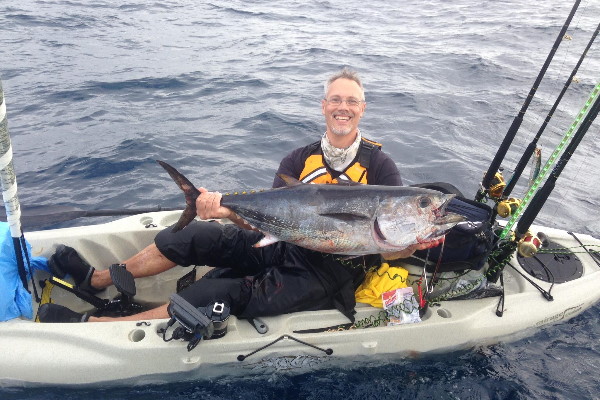
The annual migration of baitfish reaches the Southern California coast in mid to late spring, turning red hot with large calico bass. White sea bass and halibut can also be caught while anglers are out on their boats or kayaks looking for prey – much like a fisherman gone fishing! Small bonefishes dwell within bays along with offshore waters offering terrific sportfishing options such as yellowfin tuna, albacore, wahoo, and dolphin.
If you’re looking for a day trip from San Diego, take one of the many tours available to visit Mexico’s Coronado Islands. You’ll need your passport if going into this country, so ensure it is always safe and secure in advance!
Panama
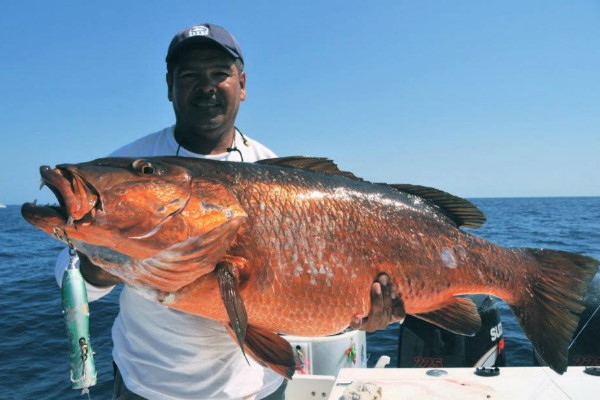
Panama is a fascinating country that offers many fishing options, but it’s better known for its offshore seamounts and rugged coastline. The beautiful waters allow for catching big fish such as wahoo or mahi-mahi! If you visit soon after catching your first ever Atlantic cod, head to one of their famous resorts, where they will serve fresh seafood straight from the boat.
Some other famous fishing destinations can be mentioned, such as The Bahamas; Ft. Lauderdale, Florida; Iztapa, Guatemala; Cape Cod, Massachusetts; etc.
Each of these destinations offers something unique and provides anglers with the opportunity to catch a variety of different fish.
What Are the Dangers?
While saltwater fishing in the deep sea can be an exciting and rewarding experience, it is vital to be aware of the potential dangers.
The most common danger is getting lost. It is easy to happen if you’re not paying attention to your surroundings or the weather changes and you become disoriented. Additionally, since you’ll be far from shore, you should have a seaworthy boat and equip with all the necessary safety gear.
Another danger is encountering dangerous wildlife, including animals such as sharks, whales, and stingrays. While these encounters are rare, it is essential to be prepared and know what to do if you do encounter one of these creatures.
One more danger is falling off. It can happen when a big wave hits the boat, and you’re not paying attention. If you do fall in, it is necessary to stay calm and swim to the nearest ladder or piece of safety gear.
Extreme weather conditions are another potential danger when fishing offshore, including storms, high winds, and waves. If finding yourself in extreme weather conditions, you must head to shore immediately and seek shelter.
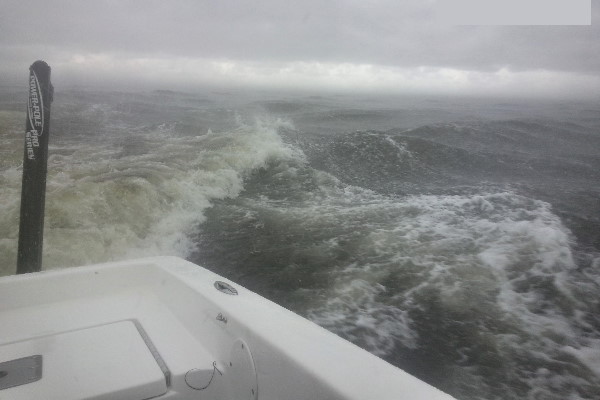
While off shore fishing can be dangerous, keep in mind that you can avoid these dangers by taking the proper precautions.
Safety Tips
As you have seen the dangers of offshore fishing trips above. Here are some safety tips to help ensure a safe and enjoyable trip:
1. Check the weather: Before heading out, check the weather forecast. It will help you plan your trip and avoid bad weather conditions. As noted above, bad weather can cause many dangers during your trip.
2. Wear a life jacket: Be sure to wear a life jacket while on the water.
3. File a float plan: Let someone know where you’re going and when you’ll be back, especially when you prepare for an extended trip.
4. Bring a radio: A radio can use to call for help if you run into trouble.
5. Check safety equipment: Make sure you and every passenger know its storage location on the boat. Check all safety equipment before departure.
6. Be aware of your surroundings: Be on the lookout for hazards like rocks or other boats.
7. Don’t fish alone: It’s always best to go fishing with someone else. That way, if you run into trouble, there’s someone there to help.
8. Wear the proper clothing: Be sure to wear clothes that protect you from the sun and the elements. These clothes also need to be comfortable and suitable for fishing activities.
9. Bring plenty of food and water: Bring enough food and water for everyone on the trip if you’re going to be out all day.
10. Check all gear and supplies before heading out.
These safety tips will help ensure a safe and enjoyable offshore fishing trip for everyone involved. By following these tips, you can help make sure that your trip is fun and safe.
How to Find Fish?
There are a few things to remember when trying to find fish when offshore.
First, it is necessary to consider the time of year. Different fish migrate at divergent times of the year, so you’ll need to know when fish will be in the area you’re planning to fish.
Additionally, it is essential to pay attention to the weather. The weather can significantly affect where the fish will be and whether or not they will bite.
Another thing to not forget is the type of fish you’re hoping to catch. Some fish prefer deep waters, while others stay closer to the surface. Knowing in advance where the fish you are targeting will help you have a more successful fishing trip.
Finally, it is crucial to use the proper bait or lure. Different fish are attracted to different types of bait and lures. So it is critical to do some research before your trip.
What Should You Do If You Experience Problems?
If you experience any problems while offshore, the first thing you should do is stay calm. It is essential to think clearly and make clever decisions to solve the problem.
If you get lost at sea, it is best to stay with your boat. Your boat will be easier to spot than you will. It also provides shelter and supplies. If you have a radio, use it to call for help.
If you run out of fuel, the best thing to do is to head for shore. Try to row or paddle your boat if possible. If you can’t reach shore, then wait for rescue.
If you get seasick, the best thing to do is to lie down and rest. Try to drink plenty of fluids and avoid eating if possible. If your symptoms are severe, then you should call for help.
If you are stranded on the water, the best thing to do is to signal for help. Use a mirror or flare to attract attention. If you have a radio, use it to call for help.
By being aware of the potential problems that can occur while offshore, you can be better prepared to handle them if they arise.
FAQs
What types of fish can you catch offshore?
There is a variety of different fish you can grab offshore. The type of fish you are likely to catch will depend on the time of year, the location, and the kind of bait or lure you’re using. We can list some common fish species, such as tuna, marlin, swordfish, mahi-mahi, sailfish, wahoo, and amberjack.
There are some large fish that you can only encounter offshore, such as dolphins or sharks.
How far out is considered offshore?
Offshore fishing is typically defined as fishing that occurs more than ten miles from the shore. However, this can vary depending on the location. In some areas, such as the Gulf of Mexico, it is considered any fishing that takes place more than nine miles from the shore.
How do you get started?
If you’re new to deep-water fishing, don’t worry – we’re here to help! There are a few things you need to do to get started.
First, you’ll need to purchase or rent a boat suitable for offshore. If you are not sure what kind of boat you need, ask a professional or someone with experience.
Next, you’ll need to obtain the proper supplies and equipment, including items: life jackets, food, water, first-aid supplies, and more.
Finally, you’ll need to familiarize yourself with the basics, it includes learning about different types of fish, how to find them, and what kind of bait to use.
When should you not go offshore saltwater fishing?
The best time to go fishing offshore is during the summer when the weather is warm along with the water is calm. However, there are times when it’s not safe to go deep-water fishing. You should avoid going during times of high winds and waves. These times include severe weather conditions, such as hurricanes or tropical storms.
How big of a boat do you need for offshore?
The boat size you need for offshore depends on the type of fishing you plan. If you’re planning on doing light fishing, such as trolling or bottom fishing, or in calm waters, a small boat will suffice. However, if you’re planning on doing big-game fishing, such as marlin fishing, you’ll need a larger boat to handle the rough waters.
Can you take a 20-foot boat offshore?
A 20-foot boat can be taken offshore, but it’s not recommended because a 20-foot boat is considered too small for rough waters. If you take a 20-foot boat offshore, you’d better stay in calm waters and watch the weather conditions closely.
What should you wear offshore fishing?
When going offshore fishing, it’s necessary to wear the proper clothing. You should wear clothes that protect you from the sun and the elements. It includes long pants, a long-sleeved shirt, a hat, and sunglasses. You should also wear closed-toe shoes, such as sneakers or boots.
What are the best lures for offshore?
The best lures for offshore depend on the type of fish you’re trying to catch. Each fish prefers a different bait, so be sure to do some research before heading out. You can also ask a local bait shop for recommendations.
What is the best bait for offshore fishing?
There are a variety of different baits that can use for deep-sea. They depend on the type of fish you’re trying to catch. Some popular kinds can mention as live bait, such as minnows or squid, and artificial lures, such as jigs or spoons.
What are some tips for fishing in rough waters?
When fishing in rough waters, it’s important to use heavier tackle than in calm waters. It includes using heavier lines and bigger hooks. A boat that can handle the rough waters is also needed.
If you have a bass boat, you can check out our article on whether it can handle rough water.
What are some tips for avoiding seasickness?
There are some things you can do to avoid seasickness when going offshore fishing. These include staying hydrated, eating light meals, and avoiding alcohol. You can also take over-the-counter medication, such as Dramamine before your trip.
Some tips for avoiding seasickness include staying hydrated, eating light meals, and avoiding alcohol. You can also take over-the-counter medication before your trip, such as Dramamine.
What should you do if you get seasick?
If you start to feel seasick while offshore saltwater fishing, there are a few things you can do to help ease the symptoms. These include lying down in a cool, dark place and drinking clear fluids. You can also take over-the-counter medication, such as Dramamine, to help ease the symptoms.
Conclusion
Now you know all about Offshore fishing.
So if you have the opportunity to fish offshore, take it. You won’t regret it. Then be sure to come back and tell us about your experience – we love hearing success stories from our readers!
Thanks for reading our article. If you have any questions, leave a comment below. You can see more posts on our website here.
Happy fishing!
Further reading
